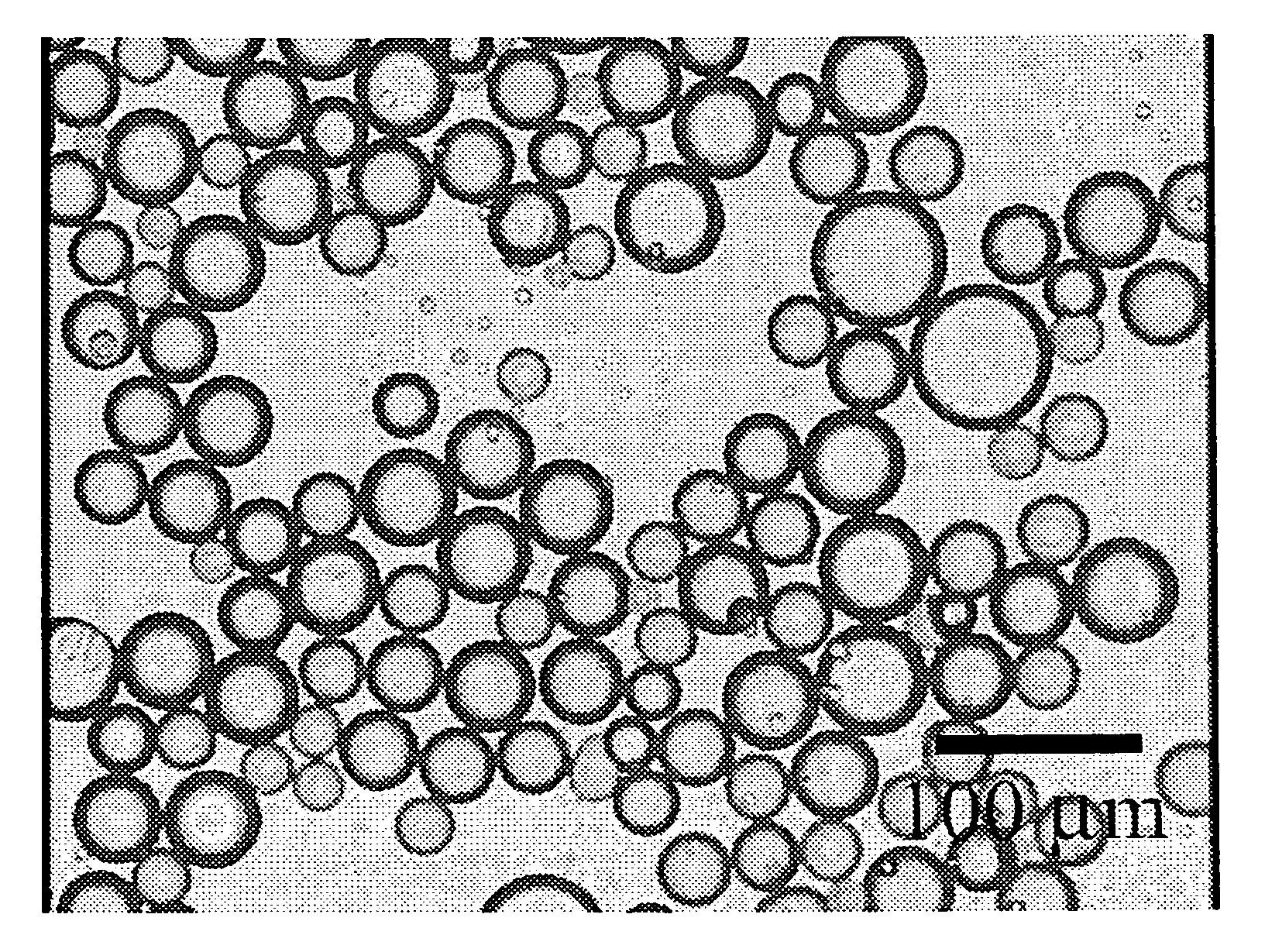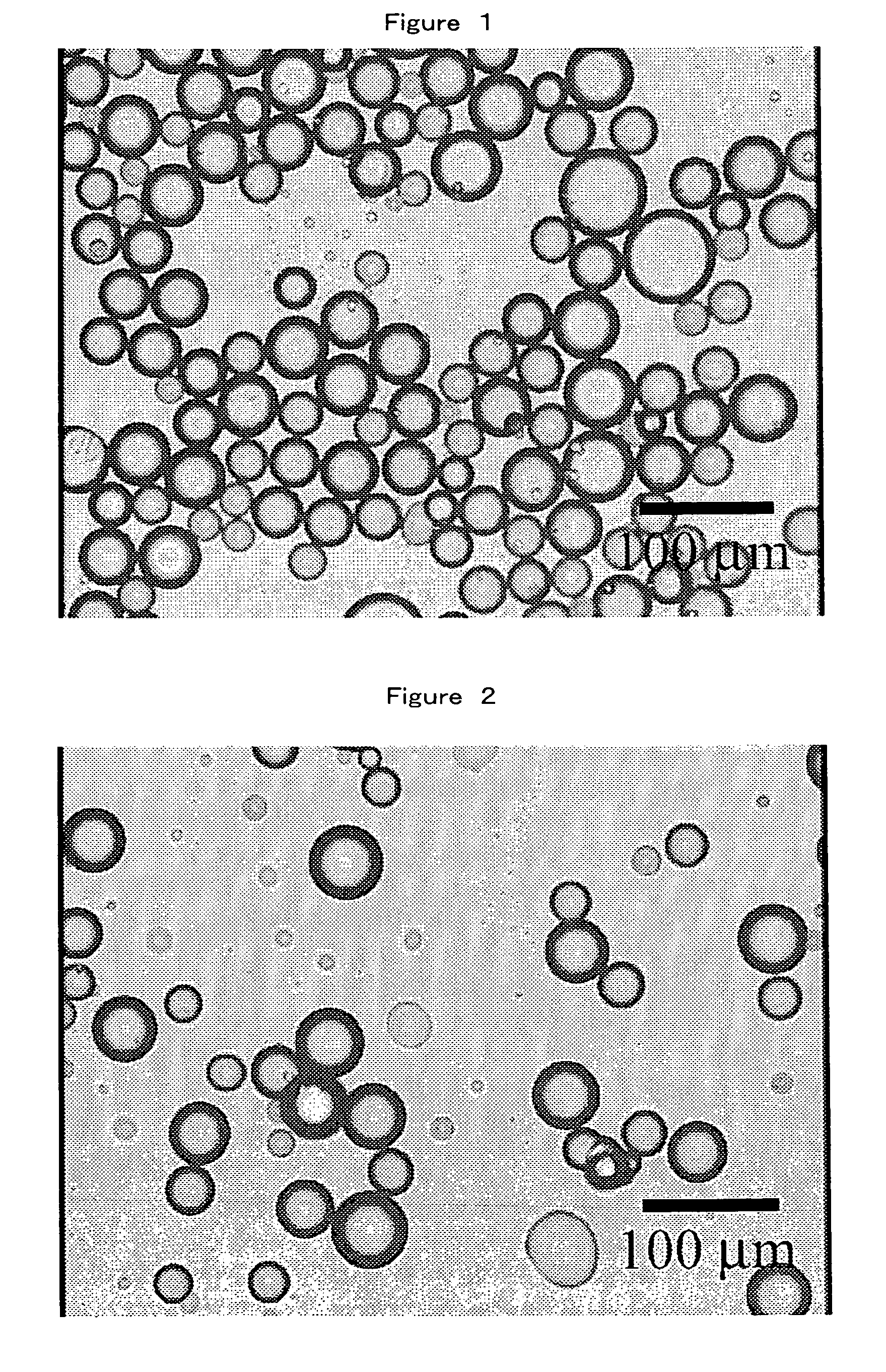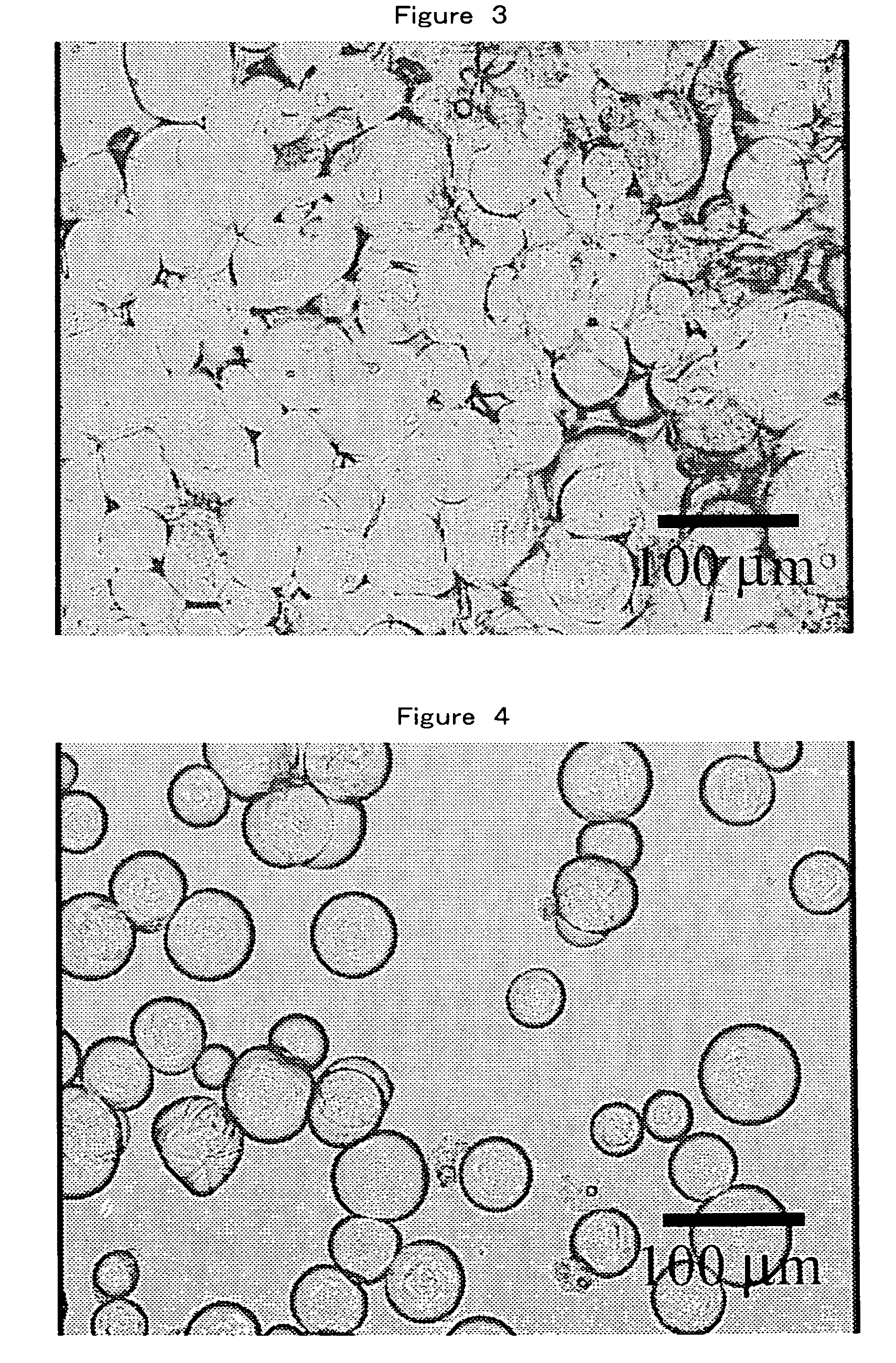Process for producing electrophoretic microcapsules
a microcapsule and electrophoretic technology, applied in the field of microcapsules, can solve the problems of inability to inhibit the formation of coacervate particles/drops, inability to produce capsules enclosing a plurality of core materials, and inapplicability limitations, so as to achieve the effect of producing a microcapsule, increasing the thickness of the microcapsule wall, and excellent stability and durability
- Summary
- Abstract
- Description
- Claims
- Application Information
AI Technical Summary
Benefits of technology
Problems solved by technology
Method used
Image
Examples
examples
[0133]The following examples are intended to describe this invention in further detail and should by no means be interpreted as defining the scope of the invention. Incidentally, unless otherwise noted, “part(s)” indicates “part(s) by weight” in the following examples and comparative examples.
[0134]The following characteristics were evaluated about microcapsules.
[Electrophoretic Property]
[0135]One electrode was overspread with a dried microcapsule particle (encapsulating titanium oxide and oil blue), and further covered with a transparent electrode to form a plate. A voltage was applied between the both electrodes, and the state that the color of the plate was changed from white to blue or from blue to white, in response to switching the polarity of the electrode from positive charge to negative charge or from negative charge to positive charge, was observed. This color change is attributable to migration of either particle to the plate surface side (transparent electrode side) in e...
PUM
| Property | Measurement | Unit |
|---|---|---|
| acid value | aaaaa | aaaaa |
| mean particle size | aaaaa | aaaaa |
| mean particle size | aaaaa | aaaaa |
Abstract
Description
Claims
Application Information
 Login to View More
Login to View More - R&D
- Intellectual Property
- Life Sciences
- Materials
- Tech Scout
- Unparalleled Data Quality
- Higher Quality Content
- 60% Fewer Hallucinations
Browse by: Latest US Patents, China's latest patents, Technical Efficacy Thesaurus, Application Domain, Technology Topic, Popular Technical Reports.
© 2025 PatSnap. All rights reserved.Legal|Privacy policy|Modern Slavery Act Transparency Statement|Sitemap|About US| Contact US: help@patsnap.com



